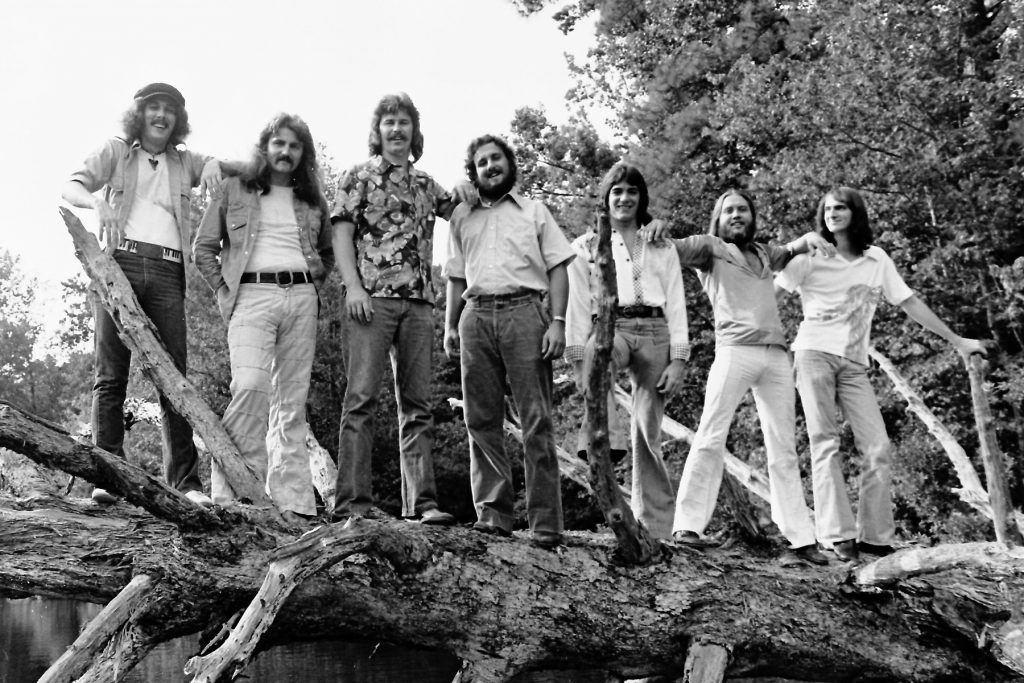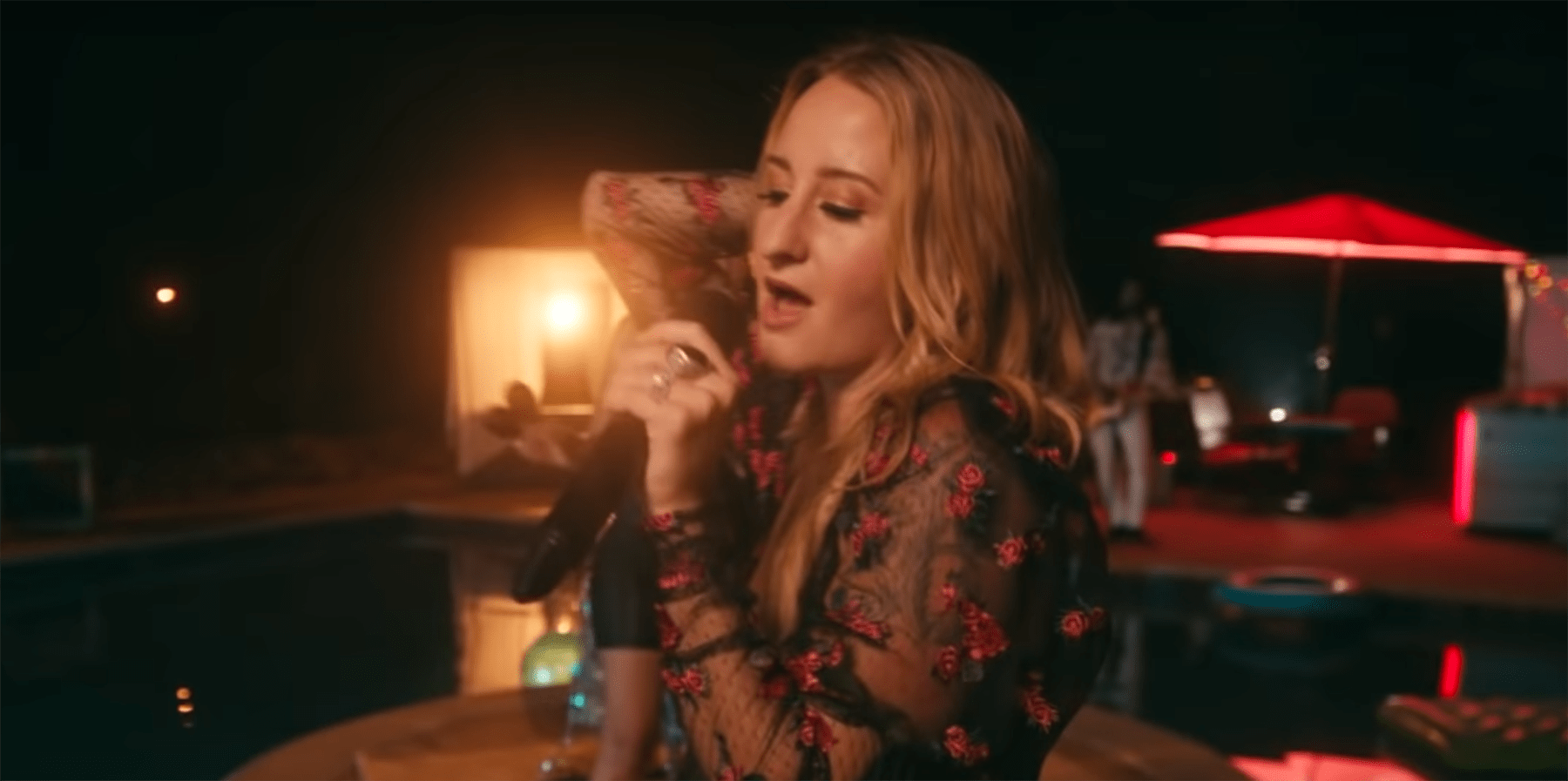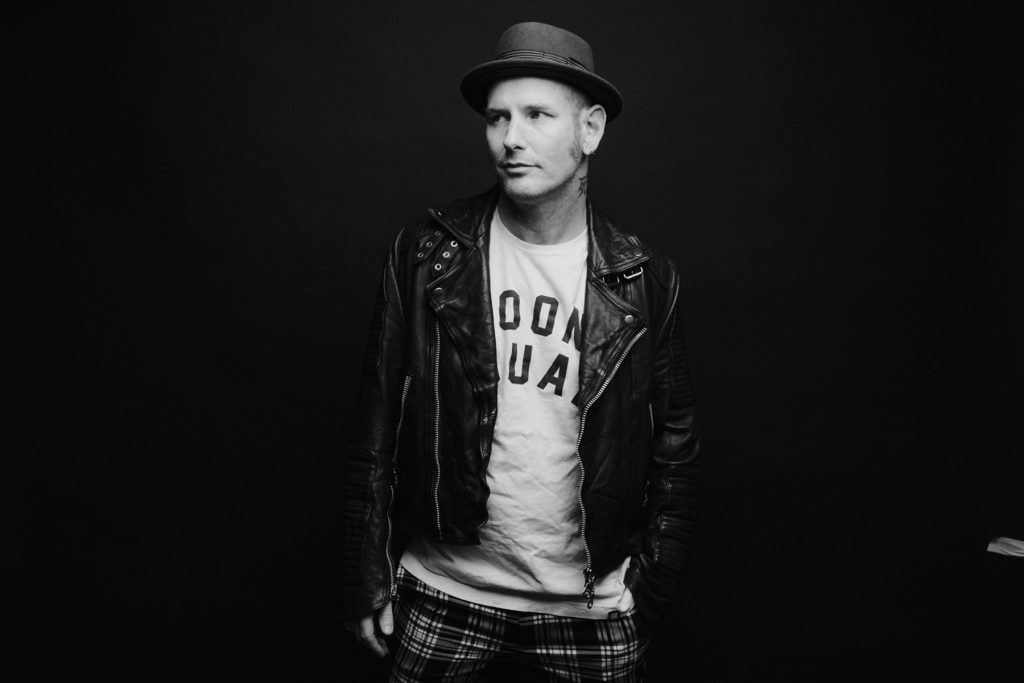
‘Almost Famous’ at 20: Meet the Real Stillwater
This piece is part of our ongoing coverage of the 20th anniversary of Almost Famous.
One of them leapt off a hotel balcony into a swimming pool. Another almost missed a ride on the tour bus after making a detour to an after-show bash. They met groupies and partook in their share of on-the-road partying, and a newspaper headline declared that the band “runs deep.”
If you think that sounds like Stillwater, the fictional band from Almost Famous, you’d be correct. But those tales also apply to a real-life group of the same name that existed during the same period — but were obscure enough that even Cameron Crowe doesn’t remember much about them. The real Stillwater didn’t travel on a private plane and never made the cover of IndieLand, as Crowe’s faux road dogs did. But during the Seventies, they managed a minor chart hit and released two albums on the same label as fellow Southern rockers like the Allman Brothers Band and the Marshall Tucker Band.
And like their Hollywood namesake, Stillwater approached rock & roll fame but never quite got all the way there. “We were almost famous,” says guitarist Mike Causey. “So I guess that’s the similarity.”
By the standards of Seventies rock & roll, Stillwater should have left more of a mark. Most of the members grew up in and around Warner Robins, Georgia, a small city just outside of Macon best known as home to Robins Air Force Base. They cut their teeth in rock and soul bands and worshipped the Doors, Eric Clapton, and all the classic rockers whose music impacted that generation. Lead singer Jimmy Hall heard Joe Cocker and decided that’s what he wanted to do for a living.
In 1972, Causey met fellow guitarist Bobby Golden at Georgia College. It didn’t take long for the pair to decide to drop out and start a band, in which they were joined by Hall; drummer and sometime singer Sebie Lacey; keyboardist Bob Spearman; and, eventually, bassist Allison “Al” Scarborough. Many in the band had known one another, or known about one another, since high school days. Inspired partly by the name of Golden’s previous band, Coldwater Army, Causey suggested they call themselves Stillwater. “We were sitting around in my kitchen and I threw it out there, and everyone thought it was good, so we just ran with that,” Causey says. “I pulled it out of the air.”
Sharing a house in nearby Kathleen, Stillwater paid textbook rock & roll dues. They played local bars — schlepping to gigs in Lacey’s Pontiac — and eventually became the house band at Uncle Sam’s, a prominent club in Macon. They couldn’t have picked a better time and place to get started. Southern-fried rock, with its guitar solos, flailing hair, and proudly regional swagger, was at its peak, and Macon-based Capricorn Records was the music’s hub.
One night in 1974 at Uncle Sam’s, Stillwater were introduced to producer Tom Dowd, who had worked with the Allmans and Eric Clapton; surrounding him, they literally begged him to record one of their demos. Dowd squeezed them into the studio early one morning, before a session by other local stars, Wet Willie, even though it meant the musicians had to wake up at an ungodly hour.
Nothing came of the demo, but Stillwater soon added another guitarist, German-born Rob Walker, to turn them into a brawny three-guitar army à la Lynyrd Skynyrd and the Outlaws. Gradually, the big-name locals began to take notice. “Their songs were not just typical Southern rock or blues-based,” says Jimmy Hall (no relation) of Wet Willie. “And the way they featured the guitars really set them right alongside us, the Marshall Tucker Band, and Allman Brothers. But they were different in a very cool way.”
In a later, nationally syndicated newspaper story, groaningly titled “Stillwater Rock Band Begins to Make Waves,” Golden maintained that the band’s music “isn’t your basic Southern boogie that people associate with cowboy hats and beer drinking and hell raising.” The writer agreed, calling them “somewhere between a hard blues sound and heavy metal.” The same story claimed that Crowe had once made a wisecrack about Stillwater, saying they should have been dubbed the “Wet Tucker Brothers” in light of those similarities. (Crowe has no recollection of the comment and has said he based his Stillwater on several bands he interviewed in the Seventies, including Led Zeppelin and the Allmans.)
Every summer, Capricorn threw a barbecue that became one of rock’s go-to events. In any given year, you could see the Allmans or Elvin Bishop onstage, partake of free weed passed around in plastic baggies, and gawk at visitors from Andy Warhol to Bette Midler. At Uncle Sam’s during the 1976 festivities, the BBC filmed Stillwater for its Old Grey Whistle Test series, broadcasting their triple-guitar rock to the world. By then, Capricorn head Phil Walden was managing Stillwater, along with Golden’s dad, and Walden signed them to his label. The band was paired with producer Buddy Buie, who would rack up hits with the Atlanta Rhythm Section (“So Into You,” “Imaginary Lover”) and had co-written the Sixties hits “Spooky” and “Stormy.”
At the end of a session, Buie suggested to Walker that they write a song about a talking guitar that would utilize the “talk box” effect then in vogue thanks to Peter Frampton and Joe Walsh. “I didn’t know what to think,” Walker says of the idea. “It was pretty out there.” The two men quickly wrote “Mind Bender,” a strutty blues with some of the strangest lyrics ever heard on a pop single. “I wasn’t stoned or drinkin’/When I heard that talkin’ guitar say,” the song goes, followed by a vocal sung through a talk box: “My daddy was a Gibson/My mama was a Fender/That’s why they call me Mind Bender.”
In July 1977, Capricorn released Stillwater, which included not just “Mind Bender” but songs that showcased their other influences: acoustic fingerpicking in “April Love,” a bit of Boz Scaggs R&B in “Universal Fool,” and a dab of ARS-style pop in “Rock-N-Roll Loser.” The nearly 10-minute “Sam’s Jam,” inspired by their nights paying dues in that club, showcased their penchant for extremely long guitar solos.
By the end of that year, the Allmans had collapsed and Lynyrd Skynyrd had suffered a plane crash that killed several of its members. Perhaps, some thought, Stillwater could fill the gap. Their booking agency, Paragon, arranged for them to open for Foreigner, the Charlie Daniels Band, and other major headliners of the day, although few thought they would be openers for long. “They’re going to be stars,” announced the Atlanta Journal-Constitution. “Catch them while you can.”
Even before Stillwater took their rock-smorgasbord sound on the road, they had their share of adventures, like the night in Florida when Lacey had time to kill before a show and decided to dive into the hotel pool — one floor at a time. “I kept climbin’ and jumpin’,” he recalls. “I went up to the third floor and thank goodness I hit the pool. I busted the whole butt of my pants.” Lacey is well aware that the moment echoes the “golden god” scene in Almost Famous. “People say, ‘Now, which one were you?’“ he says. “I say, ‘Well, that one guy who jumped off into the pool.’ I was a young and crazy.” He only stopped after a distressed maid begged him not to jump farther, fearing he would seriously injure himself.
Promoting their first record, they slogged around the country in a movie-Stillwater–style tour bus, and they say the depictions of life onstage and offstage in Almost Famous were true to their experience. “I don’t remember thinking the press was the enemy, but all that backstage stuff was real,” says Walker. “The movie really nailed it — the dynamic in a band, the mundane quality of some of it, everyone traveling together, the scenes on the bus. It was all pretty accurate.” (There was no “Tiny Dancer” singalong, though; Walker pegs the song as “really poppy.”)
In order to play as well as possible, Stillwater made a pact to party only after shows. Other bands thought that vow was “just weird,” says Scarborough, but Stillwater were determined to make it, although they readily partook of the perks of their job once their shows were over. In 1977, a Tampa Tribune reporter hanging with them backstage observed “a friendly woman, who earlier had invited all to a party at a nearby lodging, reappeared. Band members, anonymous for their own protection, made leaving sounds. ‘There are some advantages to being on the road,’ one member said.” On a highway drive back home one night, Stillwater sidled up to a car of young female fans in the next lane and wound up pulling over, sharing some beer, then following them to New Orleans, arriving home to Georgia much later than they planned. So did Stillwater have its own version of a Penny Lane? “Well,” says Lacey with a drawl, “we had a lot of versions of things.”
But like the fabricated Stillwater, the real one didn’t quite rocket to stardom. “Mind Bender” began making noise on the charts, almost cracking the Top 40. But a few days into their first tour, opening for the Outlaws, a truck containing all their gear was stolen in Chicago. All that remained was a pair of one band member’s dirty sneakers. After a depressed drive back home to Georgia, Stillwater had to wait about a month before new funds and equipment arrived. “It was a messed-up thing,” says Scarborough. “We had a hit record and couldn’t support it.”
To make matters more exasperating, Capricorn Records found itself with a new distributor shortly after the release of Stillwater. During that business switchover, copies of the album were hard to find, and promotional efforts briefly ground to a halt. “We were playing somewhere,” recalls Golden, “and a rep [for the first distributor] came up to me and said, ‘Hey, man, I got a call today to go cold on Stillwater.’” It also didn’t help that some of the promotional singles of “Mind Bender” were accidentally pressed up as “Arte Stillwater” after someone at the label misread “Artist: Stillwater.” “Capricorn was so good to us,” says Walker, “but this was just an example of a Spinal Tap moment we experienced.”

Members of Stillwater playing at the Peach Blossom Festival, in Macon, Georgia, 1976.
Herb Kossover/Mark Pucci Media
In a more positive development, a Six Flags amusement park in Atlanta introduced “the world’s only triple-loop rollercoaster” and called it the Mindbender. Stillwater were invited to both play a show at the park and take a kickoff ride. “They actually let us ride on the Mindbender prior to the performance,” Walker recalls fondly, even if the scene also had shades of Spinal Tap. “We were the only ones on it.”
Stillwater pumped up the volume on their second album, 1978’s I Reserve the Right. The Skynyrd-nodding title song and “Keeping Myself Alive” downplayed the Southern influences in favor of a more mainstream hard-rock sound, and the yacht-rocky slow jam “Women (Beautiful Women),” heartily sung by Lacey, struck them as a potential hit. “That’s kind of when the disco was starting to come around,” says Scarborough. “We tried to be a little bit more synthesizer-oriented. We were trying to blend rock & roll and soul and disco.” But while opening for the Cars in Boston, they began realizing that their style was on the wane. The fans were polite, Golden recalls, but not much else: “They were waiting for the Cars. I don’t know if they were fans of ours.”
The album tanked, not helped by the startlingly fast descent of Capricorn Records. When the music business slumped in 1979, the label found itself in massive debt and was unable to repay a loan to its parent company. Walden and the company filed for bankruptcy. Some of Stillwater attended court hearings and were dismayed by what they saw and heard. “We walked away from that thinking, ‘That’s pretty much it — we’re done,” says Hall, who left the band in 1980. His wife was pregnant, and he realized he had to earn more than the $100 a week he made with Stillwater.
The band carried on, hiring a new drummer (David Heck) so that Lacey could handle more of the lead vocals. But their tribulations weren’t over: Approached by another major label with a new contract, they turned it down to consider an offer with another record company based in Colorado, where they briefly relocated. But in the end, neither deal materialized.
Returning home, they found themselves with fewer and less glamorous gigs. In 1983, they arrived at a job at what turned out to be a backwater bar. “It was clubs to concerts and then back to clubs and bars,” says Walker with a sigh. Right then, they knew it was over and that it was time, as Scarborough says, to “let it go.”
The members of Stillwater transitioned to new and very non–rock & roll lives. Faced with paying bills and supporting families, they worked variously in advertising sales, crate manufacturing, carpet installation, electrical engineering, and for the postal service; Walker joined the Air Force band. “We had to find something else to do,” says Causey. “It was kind of disappointing, but you felt like you gave it the best try you could. It was, you know, welcome to the real world.”
To keep up their chops and keep the music alive, Stillwater would reunite almost annually at a local club. In 1998, they self-released Runnin’ Free, largely built around songs they had recorded before their breakup but finished 15 years later. The release compensated for the fact that the master tapes of their first two albums disappeared along the way and were unavailable in any format for decades.
In 2000, Lacey, then (as now) running a successful dry-cleaning business in Warner Robins, was home with his family when the phone rang. On the line was an executive from the multi-tentacled entertainment company DreamWorks. “She said, ‘We’ve been trying to get in touch with the Stillwater guys,’” he recalls. “I thought someone was pulling my leg.” When he asked how she found him, she replied that there weren’t many people named Sebie Lacey in Kathleen, Georgia.
What Lacey and his bandmates didn’t know was that as Almost Famous was wrapping up, DreamWorks had to make certain that rights and permissions were all in order. They had gone in search of the real Penny Lane and received approval to use her name, but that research also led them to discover there was also a band called Stillwater.

Stillwater after signing their record contract: Mike Causey, Jimmy Hall, Bobby Golden, Allison Scarborough, Bob Spearman, Sebie Lacey, and Rob Walker (from left).
Herb Kossover/Mark Pucci Media
The news even surprised Crowe, who had no clear memory of them and says he picked the name for other reasons. “I thought [the name] was a not-so-subtle comment that the band was possibly stagnant,” he says, laughing. “I liked the idea that Russell Hammond would be saddled with a band that had a name that was like, you know, algae-filled water. I thought it was funny and ironic.”
DreamWorks assured the members of Stillwater that the movie wouldn’t embarrass them, and to prove it, they were sent parts of the script. Luckily, the band loved the film and found it even more authentic than they imagined. “People said, ‘Is it based on y’all?’” says Causey. “We said, ‘They just used the name.’ It’s funny. You’ve been associated with that your whole life and seeing it [in a movie] was kind of wild.”
Stillwater hoped some of their recordings would be used in the soundtrack but were told the songs (some written by Heart’s Nancy Wilson) were all locked in. But they did ask for — and receive — financial compensation for the use of their name, although it wasn’t quite the corporate windfall some may have expected: They were paid $5,000, split seven ways. “Think about that one,” sighs Lacey. “Was I thinking, or what? But we looked at it like it might help us get things back on track, which it did. We got a lot of buzz out of it.”
At least Lacey wasn’t wrong about the buzz, which later built on social media. “You started seeing a lot more of these conversations where people were saying, ‘I hear there’s a real band,’” says Walker. “A lot of misinformation, but it was good. It was exciting. People were suddenly hearing about us for the first time.” They still play an occasional reunion gig in their area, albeit without Spearman, who died of cancer in 2003; Hall survived a bout with cancer himself and only makes occasional appearances with them.
None of the members of Stillwater plan to give up their day jobs, but at least they have their memories: Gregg Allman accidentally spilling a glass of Scotch onto one of their speakers and vowing to replace it. (Stillwater roadies were ultimately able to repair it.) His then-wife, Cher, watching Stillwater by the side of the stage at a Capricorn barbecue. Bo Diddley jamming with them so hard at Uncle Sam’s that, as Lacey tells it, the next day he had to have emergency surgery to remove his appendix (“Bo Diddley rattled it with that bomp-a-bomp-bomp,” he half-jokes). Or the night the crowd went nuts for them at San Francisco’s Winterland, when they were opening for Charlie Daniels. “I felt like, ‘Hey, they’re getting what we’re trying to do here,’” Lacey recalls. “That’s what it’s all about. It didn’t go all the way to the top, but it worked somewhere.”




